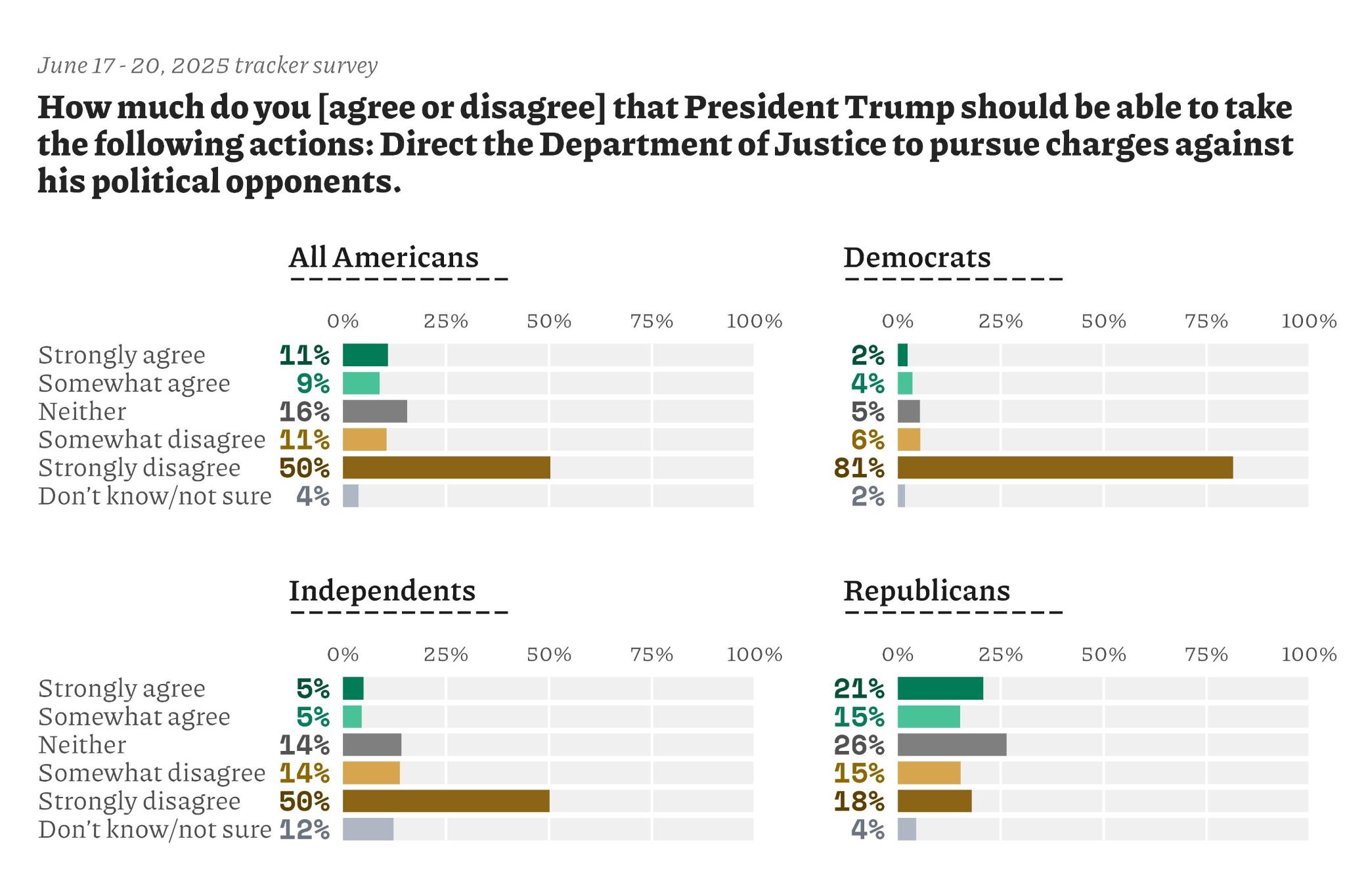Survey: Americans Don’t Want the Justice Department Investigating Trump’s Foes
In This Resource
The U.S. Department of Justice has threatened or sought criminal investigations into many of President Trump’s political adversaries, calling into question the department’s prosecutorial independence.
The president directed the Justice Department to investigate New York Attorney General Letitia James, who probed his business practices, Chris Krebs, his former top cybersecurity official who confirmed the 2020 presidential election was safe and secure, and others. That list continues to grow.
A survey from States United showed that Americans disagree with this prosecutorial overreach. More than 6 in 10 Americans disagree that Trump should be able to direct the Justice Department to pursue charges against his political opponents.
This view is in line with the Justice Department’s own internal guidance, which it is not following.
“The rule of law depends upon the evenhanded administration of justice,” the Justice Manual reads. “The legal judgments of the Department of Justice must be impartial and insulated from political influence.”
The survey was conducted in partnership between States United and YouGov between June 17 and 20 among 1,515 adult Americans.
- More than 6 in 10 Americans disagree that Trump should be able to direct the Justice Department to pursue charges against his political opponents.
- Only 1 in 5 Americans agree that Trump should be able to use the Justice Department in this way, with the idea failing to earn majority support among Democrats, independents, and Republicans.
When asked if they agree or disagree that Trump should be able to direct the Justice Department to pursue charges against his political opponents, 61% of Americans either strongly or somewhat disagreed. Disagreement was very high among Democrats (87%) and independents (64%). Though disagreement was lower among Republicans (33%), only 36% of Republicans agreed. Few Americans (20%) expressed any level of agreement that the Justice Department should investigate the president’s foes.

These data are taken from a States United survey based on 1,515 interviews conducted on the internet of U.S. adults. Participants were drawn from YouGov’s online panel and were interviewed from June 17 – 20, 2025. Respondents were selected to be representative of American adults. Responses were additionally weighted to match population characteristics with respect to gender, age, race/ethnicity, education of registered voters, and U.S. Census region based on voter registration lists, the U.S. Census American Community Survey, and the U.S. Census Current Population Survey, as well as 2020 presidential vote. The margin of error for this survey is approximately ± 2.7 percentage points, though it is larger for the analysis of partisan subgroups described above. Therefore, sample estimates should differ from their expected value by less than the margin of error in 95% of all samples. This figure does not reflect non-sampling errors, including potential selection bias in panel participation or measurement error.